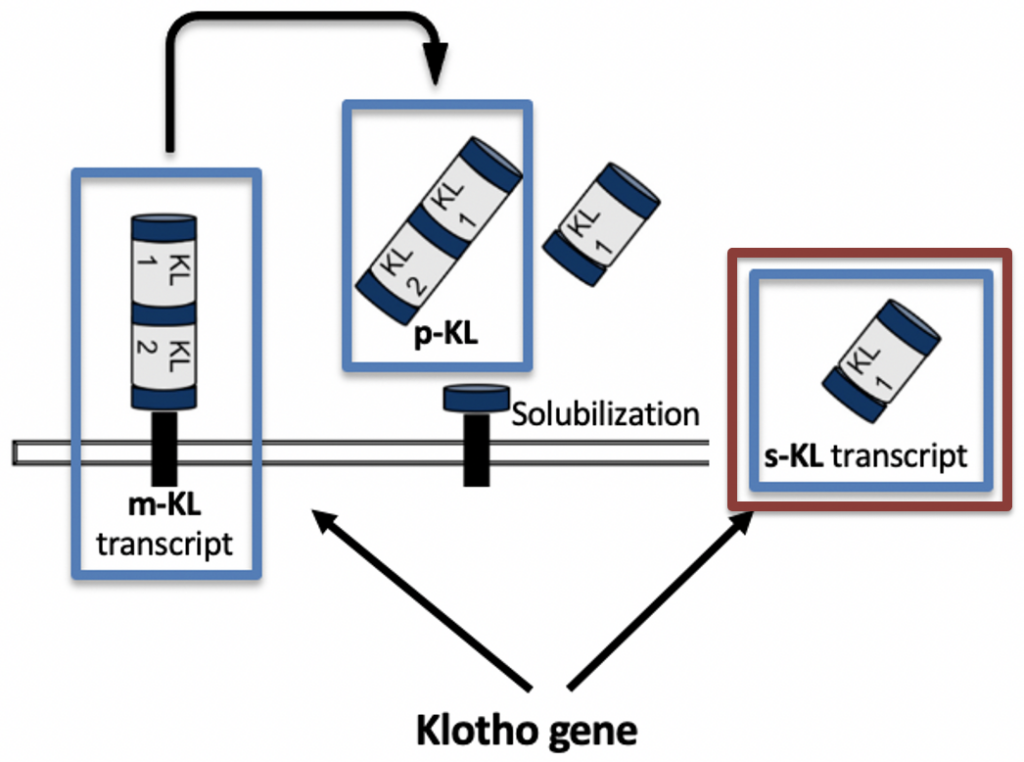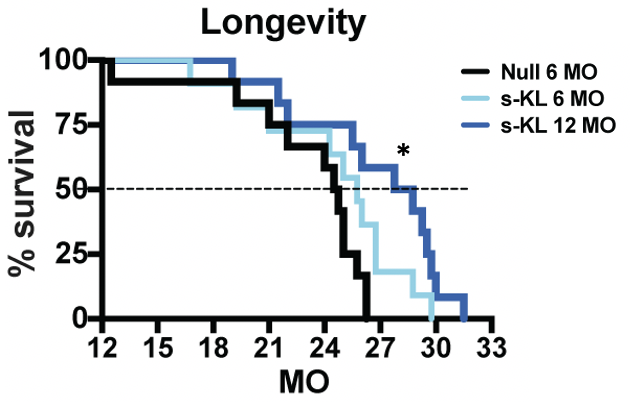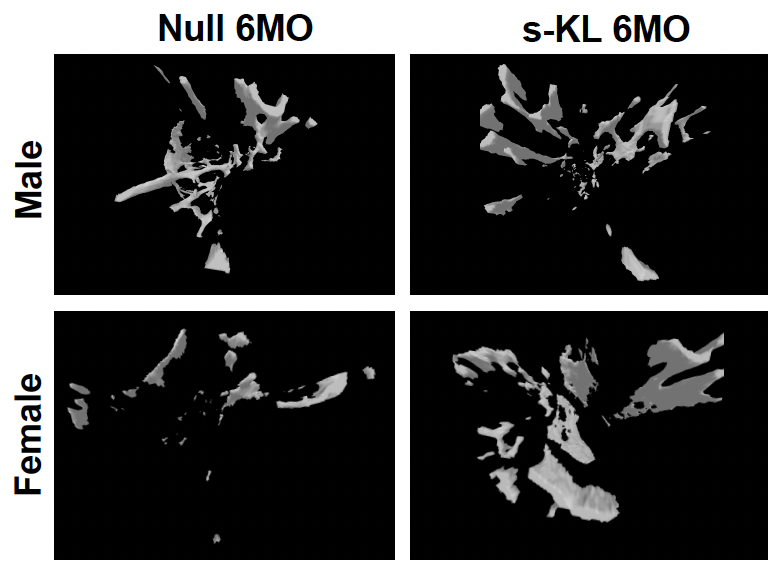Aging is a multifactorial process resulting in the progressive and irreversible time-dependent fragility and deterioration of biological functional drivers that typically keep organs and tissues healthy. In this complex scenario, our group has a contrasted experience in the field of anti-aging strategies. Specifically, our research is based on the use of chronokines (as the secreted Klotho -sKL- isoform), key biological drivers during aging, as an approach to improve biological functions related to physiological aging and age-associated pathologies.
In the last years, our group has reported that:
- sKL is expressed in the brain regions involved in memory processes like the hippocampus and cortex, and its level is associated with cognitive decline, decreasing 5-8 times faster in pathological aging such as in Alzheimer’s Disease (AD) than in healthy aging. This reduction is already evident in the early stages of AD, even before the apparition of beta-amyloid plaques (Masso A et al. 2015. PloS one. 10:e0143623).


- Just a single in vivo administration of AAVs expressing sKL resulted in long-lasting and quantifiable enhancement of memory performance in old mice and primates(Massó A et al. 2018. Mol Psychiatry. 23(9):1-11 & patent EP15195470.8).
- sKL also protects cognitive performance in an animal model of ALS (patent US-63/330.684).
- Long-term expression of sKL increase longevity by ~25% in rodents (patent EP22383171.0).
- sKL can rejuvenate the epigenetic profile of neurons in vivo (Roig-Soriano J, et al.2022. Aging Cell. 21(4):e13581; & patent EP22383171.0).


- sKL long-term expression increases bone density, and reduces bone fragility and osteopenia (patent WO2022/243519), as well as it increases muscle strength, and reduces sarcopenia (patent EP22383173.6).
- Together with the spin-off Kogenix Therapeutics and the Institute of Oncology in Tel Aviv we have observed that Klotho does not induce tumors but have tumor-suppressor activity (Arbel T, 2021. Cancers. 13(24): 6297; & patent IL2019/050913).